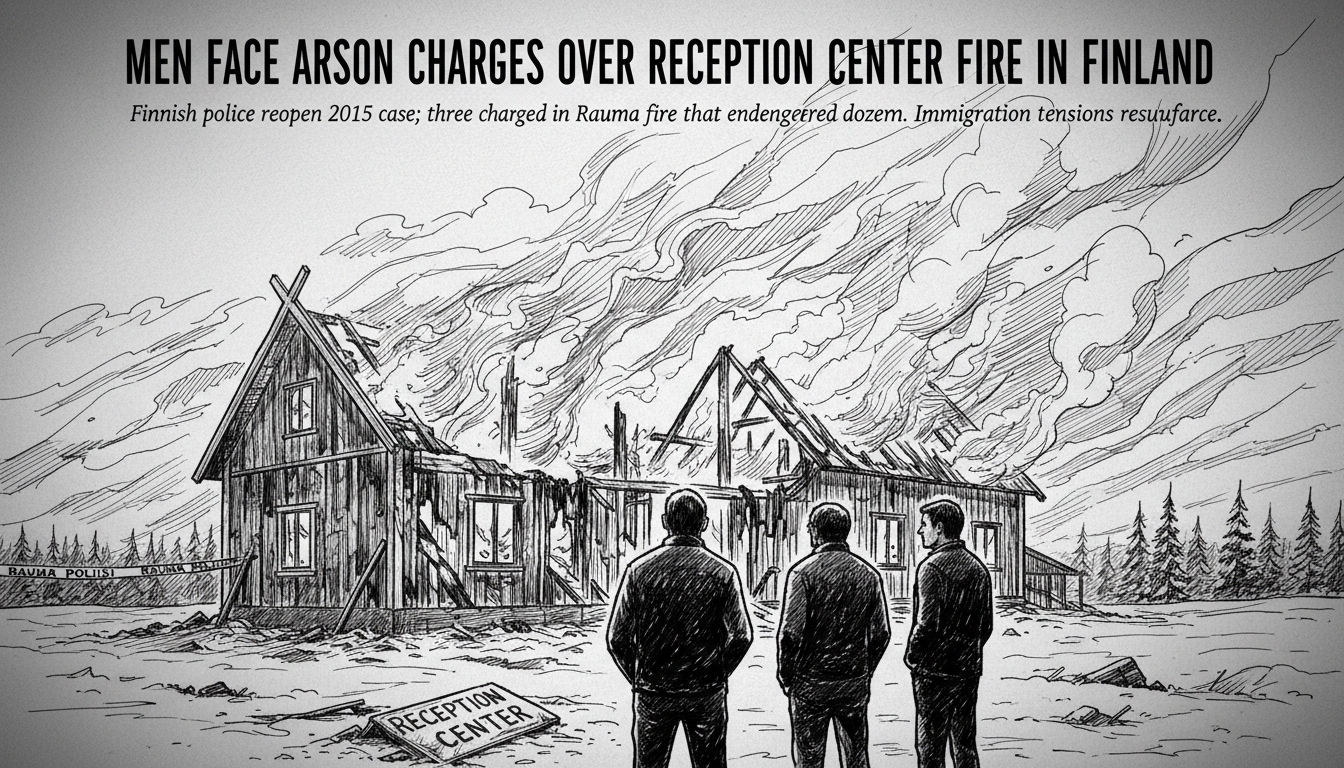Police in southwestern Finland have reopened an investigation into a serious arson case from December 2015. Three men now face allegations of aggravated criminal damage for allegedly setting fire to a building destined to become an asylum reception center in the coastal city of Rauma.
The fire occurred on December 4, 2015, at Varustajanvahe 4. Dozens of people lived in the building at the time of the incident. Authorities initially suspected arson but suspended the active investigation due to lack of suspects.
Police revived the case in March 2025 after receiving new information. Two men are suspected of actually starting the blaze, while a third faces charges of assisting in the crime. All three were in their early twenties at the time of the incident.
According to investigation details, the men believed they could prevent the reception center from opening by setting the building on fire. The lead investigator described the act as an extremely poor idea conceived by young men under the influence of substances rather than a carefully planned operation.
No serious injuries resulted from the fire, but dozens of residents faced potential danger to their lives and health. The blaze caused extensive material damage to the property.
Finland has experienced several similar incidents targeting reception centers in recent years, reflecting broader tensions around immigration in Nordic countries. The timing of this case reopening comes amid ongoing debates about Finland's migration policies and integration challenges.
The investigation into the Rauma reception center fire is now concluding, with the case moving to prosecution consideration. This development demonstrates how Finnish authorities continue pursuing serious crimes even years after they occur, particularly when new evidence emerges.
Arson cases involving reception centers raise complex questions about integration challenges and social tensions in Finnish communities. The reopening of this nearly decade-old investigation shows that serious crimes don't simply fade away with time in Finland's justice system.
What happens next depends on prosecutors' assessment of the evidence. If charges proceed, the case would represent one of the older reception center arson incidents to reach Finnish courts, testing both legal memory and public interest in resolving past crimes.

